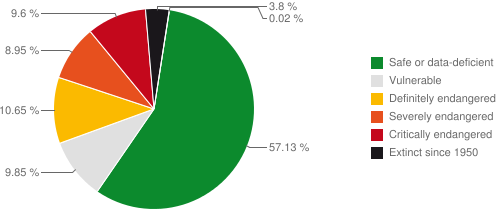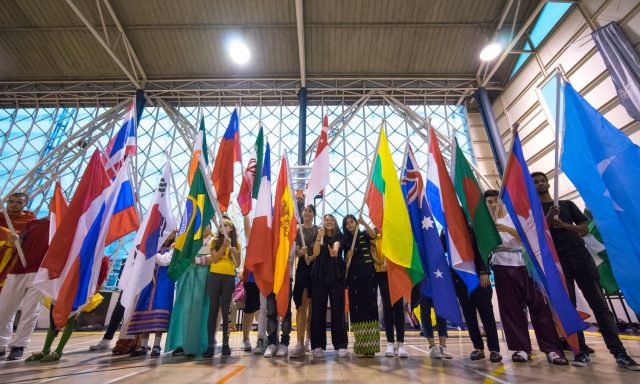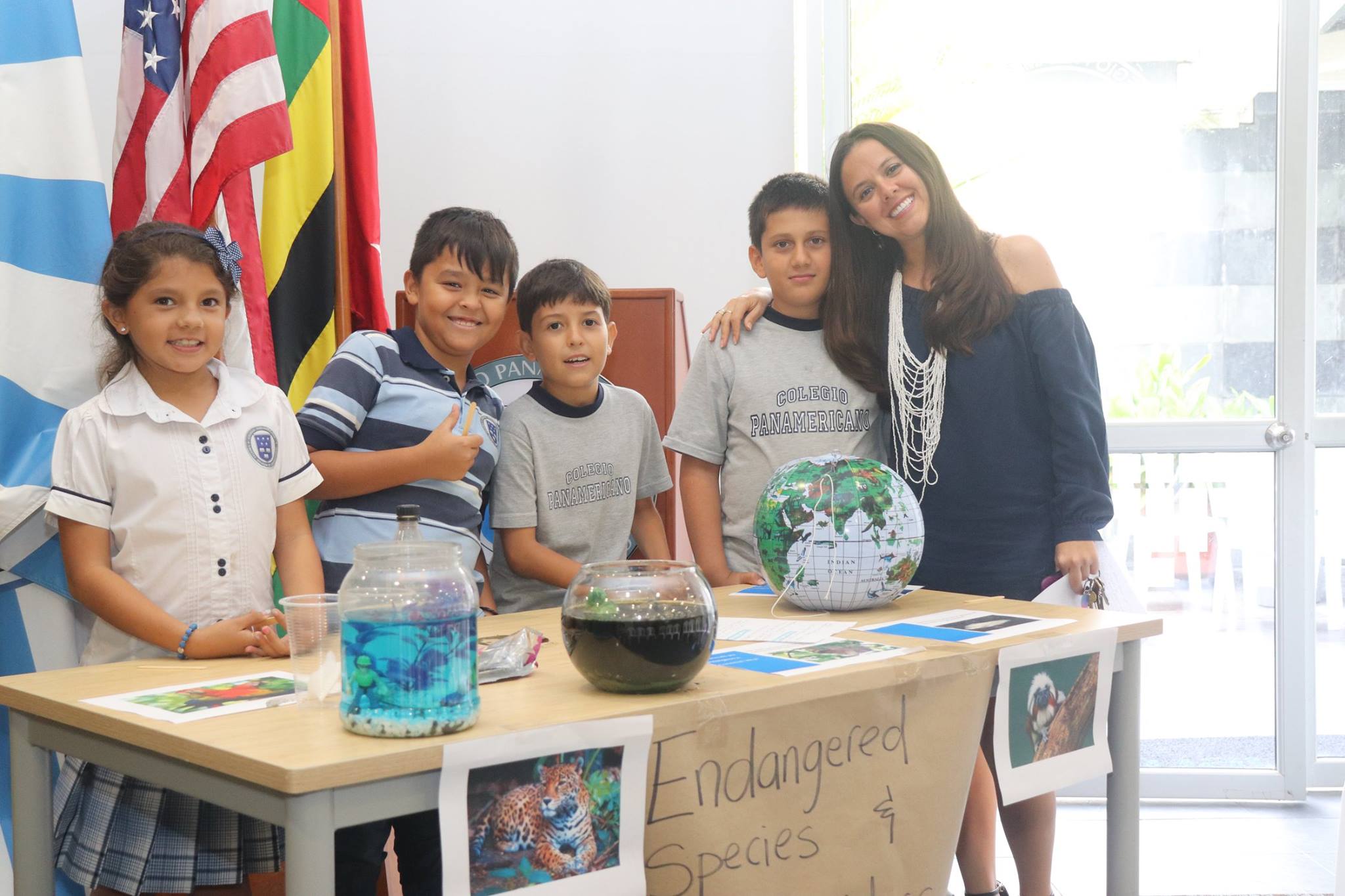Having grown up in a linguistically homogeneous community, I am perpetually impressed by my students who can easily switch between languages.
Those students who can jump from listening in English to explaining some intricate science concept in Nepali posses a special talent. Students who ask a peer, in Swahili, to clarify a math problem will always amaze me. These young people learning in their second, third or even forth language will forever be a reason to celebrate multilingualism.
While the ubiquity of English enables the world to effectively communicate, its presence overshadows the diversity of languages spoken in many countries. UNESCO celebrates linguistic diversity this year with the International Mother Language Day on Feb. 21 with the goal of, ‘fostering multilingualism for inclusion in education and society.’
21 February is International #MotherLanguageDay!
— UNESCO 🏛️ #Education #Sciences #Culture 🇺🇳😷 (@UNESCO) February 20, 2021
⁰Let us celebrate the power of mother languages to build peace and sustainability!
🗣️ https://www.unesco.org/en/days/mother-language
The annual observance is as much a celebration as it is a call to action. Fragile languages around the world continue to disappear at alarming rates. Of the 6000 documented languages spoken around the world, 43% of them are considered endangered, which results in the extinction of a language approximately every two weeks.
Like the current mass extinction event of the planet’s biodiversity, we are experiencing a massive die-off of linguistic diversity.
The role English and other languages of power in the demise of vulnerable languages is inarguable. And while opportunities arise from easier communication among different nations, there is more than just words lost when a language dies.

Learning culture from language
Often larger international schools will provide a range of languages for students to study, and the offering depends on the region. Typically, the most widely spoken languages are among those choices in addition to the home language of the host country. For expat students, these language classes offer more than just a study in grammar and vocabulary.
Paul Malimi, a Swahili teacher with United World College East Africa in Tanzania, says, “They don’t only learn the language, they learn about our culture. And how do you learn culture in a language? There are words, there are phrases, there are expressions in a culture that are not in another culture.” By developing students’ multilingual skills, Malimi is fostering an inclusive educational environment.
Malimi acknowledges the pressures English forces on speakers of mother languages that do not share its European roots. Conversing in a first language enables people to express themselves more freely. “The other day I was making a joke with my students, ‘How difficult is it for Swahili speakers to gossip in English?’ The way we speak, our tone, the way we do expressions…It’s much nicer in the language you are used to, like the expressions you are going to use really don’t translate.”

One of the most linguistically diverse nations in the world, Tanzania is home to 126 languages. Since its independence in 1961, the country has made efforts to unite the nation through Swahili which is the language of instruction in primary schools.
While the majority of Tanzanians are bilingual (Swahili and at least one other language), that linguistic diversity is under threat. Endangered languages such as Gweno and Akie, spoken in Northern Tanzania, have as few as 10 living speakers.
As a language educator of Swahili, the dominant lingua franca in East Africa, Malimi is acutely aware of the fate of these languages.
We say, ‘Language was born, grows and language dies’…slowly, slowly these languages will die, and Kiswahili will take over, because the new generation will be a nation of Swahili speakers.

Supporting multilingualism in classrooms
Research indicates that multilingualism benefits children’s’ mathematical skills and executive functions. This understanding informs the teaching practices of Teacher Horizon partner school Tessa International School, where encouraging bilingualism is a pedagogical focus of the school.
Unlike students who only spoke a single language, bilingual students were using the visual and spatial parts of their brain while solving the problems….One theory is that students are visualizing the elements of the problems in their heads (in other words, they’re actually creating pictures to represent multiplying apples or two trains leaving a station at different speeds)
How Bilingualism Supports Math Skills in Children – TESSA International School
While schools may not focus singularly on linguistic diversity, there are practical and valuable methods international teachers can implement to support their multilingual students.
- Incorporating a student’s home language into classroom activities invites children to express themselves through all their linguistic abilities. If multiple students speak the same home language, they will benefit from solidifying their learning in multiple languages.
- Provide students with real-world examples that support students’ understanding of content and language. Media-based examples like blogs and videos are perhaps the best resources to achieve this goal as they are available in most major languages around the world.
- Supporting ethnolinguistic minority speakers is especially challenging given the unique threats these vulnerable languages face. Providing accelerated learning or extra assistance, preferably in the home language, may be necessary to account for gaps in learning that these students incurred as a consequence of the coronavirus pandemic.
To learn more strategies to provide an inclusive education to this vulnerable population, read the guide recently released by UNESCO.
Interested in expanding your own linguistic repertoire? Join Teacher Horizons, start exploring and learn a new language the best way: by living and breathing it.
If you have ideas on how to best support multilingual students or celebrate linguistic diversity, reach out to us! We would love to hear from you.



